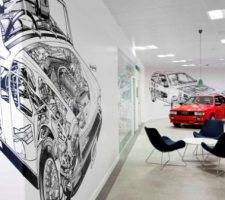November 14, 2014
Twice as many employees will use BYOD by 2018, predict analysts
 By 2018, there will twice as many bring-your-own devices (BYOD) used at work than employer-owned laptops. However, when designing BYOD programmes, employers need to ensure that they target users who have interest and propensity to use a wider choice of devices for work and feel relatively at easy with technology. According to Gartner, throughout 2017, 90 per cent of organisations will support some aspect of BYOD, and predicts that by 2018 there will be twice as many employee-owned devices used for work than enterprise-owned devices. The analysts says this is because tablets (BYOD) offer better opportunities than that of enterprise owned-laptops and smartphones, as IT departments can support nearly three times more users in tablet BYOD programs than enterprise-owned devices. BYO smartphone programmes have a total cost of ownership that is very similar to those of enterprise-owned smartphones, but will only deliver savings when the organisation is in a position to pay partial, or do not reimburse or subsidise for voice and data plans. More →
By 2018, there will twice as many bring-your-own devices (BYOD) used at work than employer-owned laptops. However, when designing BYOD programmes, employers need to ensure that they target users who have interest and propensity to use a wider choice of devices for work and feel relatively at easy with technology. According to Gartner, throughout 2017, 90 per cent of organisations will support some aspect of BYOD, and predicts that by 2018 there will be twice as many employee-owned devices used for work than enterprise-owned devices. The analysts says this is because tablets (BYOD) offer better opportunities than that of enterprise owned-laptops and smartphones, as IT departments can support nearly three times more users in tablet BYOD programs than enterprise-owned devices. BYO smartphone programmes have a total cost of ownership that is very similar to those of enterprise-owned smartphones, but will only deliver savings when the organisation is in a position to pay partial, or do not reimburse or subsidise for voice and data plans. More →
























November 18, 2014
The leap in workplace ill health is down to mobile devices and flexible working
by Lee Jones • Comment, Flexible working, Legal news, Technology, Workplace design
More →